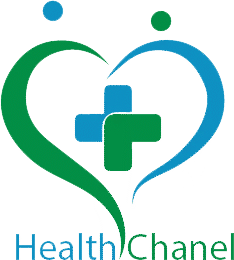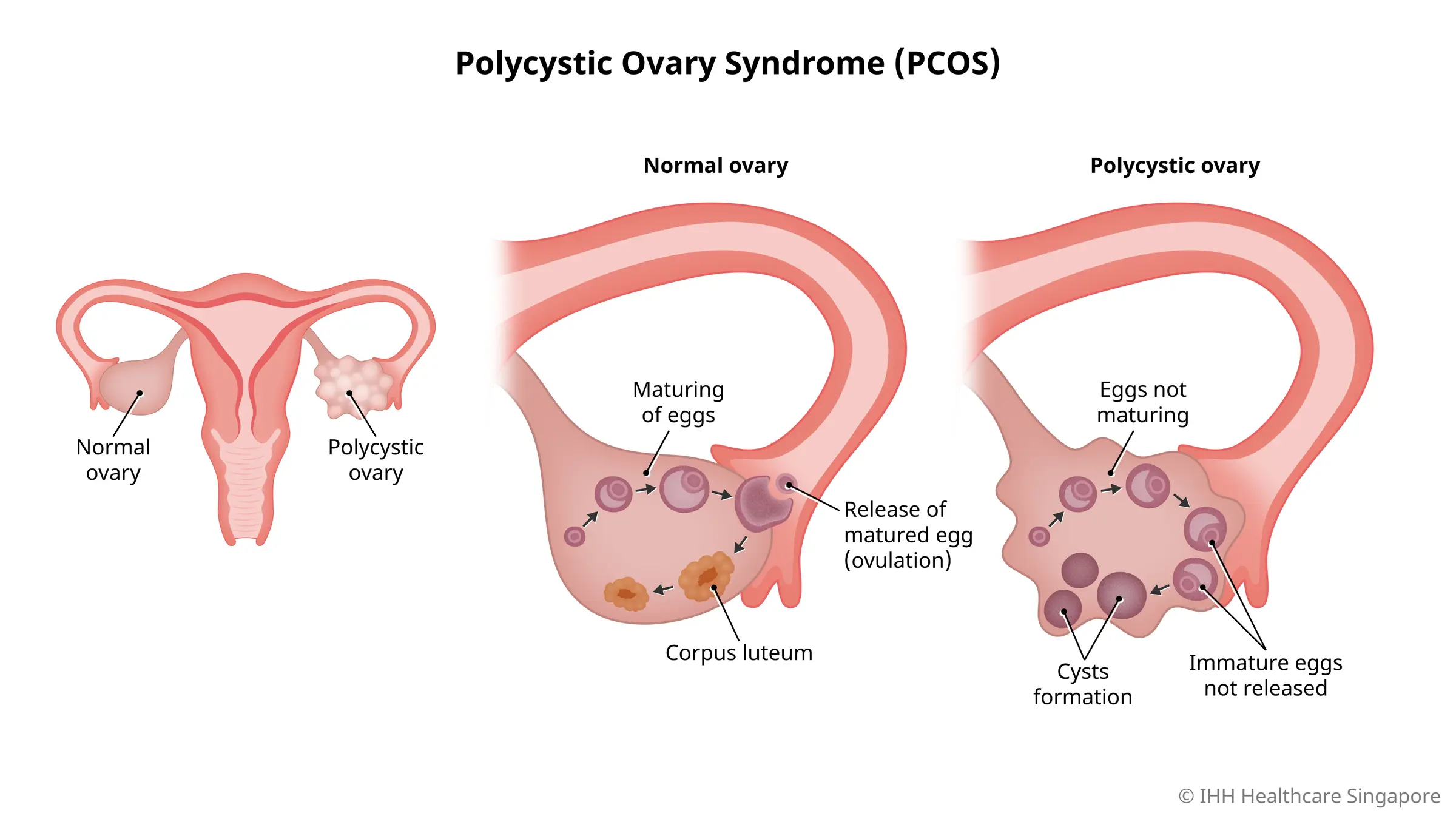What Is Polycystic Ovarian Syndrome (PCOS)?
Polycystic Ovarian Syndrome is a hormonal disorder that affects how the ovaries work. Despite the name, not everyone with PCOS has ovarian cysts. What actually happens is an imbalance in reproductive hormones—mainly increased levels of androgens (male hormones) that interfere with ovulation.
This hormonal imbalance can disrupt menstrual cycles, lead to fertility issues, and cause physical symptoms like acne, excess facial hair, and weight fluctuations. It’s a chronic condition, but it’s also manageable with the right care and support.
Common Symptoms of PCOS
PCOS doesn’t look the same for everyone. Some may have clear signs, while others may not realize they have it until they struggle to get pregnant. Here are the most common symptoms:
- Irregular or missed periods
- Excess facial or body hair (hirsutism)
- Acne and oily skin
- Weight gain or difficulty losing weight
- Hair thinning or scalp hair loss
- Darkened skin patches, often on the neck, groin, or under the breasts
- Fatigue or low energy
- Mood swings or anxiety
- Difficulty getting pregnant
It’s also worth noting that not all symptoms have to be present for a PCOS diagnosis. Even just two or three signs may be enough for your doctor to investigate further.
What Causes PCOS?
The exact cause of PCOS isn’t fully understood, but several factors seem to play a role. Here’s what we know:
Hormonal Imbalance
The hallmark of PCOS is an excess of androgens. These hormones can block ovulation, which is why periods become irregular or stop altogether. They also trigger symptoms like acne and excess hair growth.
Insulin Resistance
Many people with PCOS have insulin resistance, meaning their bodies don’t respond well to insulin. This can cause the body to produce even more insulin, which then increases androgen production. Over time, insulin resistance can also raise the risk of type 2 diabetes.
Genetics
PCOS tends to run in families, suggesting a genetic link. If your mother, sister, or aunt has it, your chances of developing it may be higher.
Inflammation
Low-grade inflammation in the body may contribute to higher androgen levels and other PCOS-related complications. This type of inflammation often goes unnoticed but can affect hormone function over time.
How Is PCOS Diagnosed?
PCOS is typically diagnosed based on three key criteria. You may be diagnosed if you meet two of the following:
- Irregular or absent ovulation
- High levels of androgens (detected via blood test or symptoms like acne/hair growth)
- Polycystic ovaries seen on an ultrasound
Your doctor may also ask about your medical history, perform a physical exam, and order tests to rule out other possible causes.
Treatment Options for PCOS
There’s no single cure for PCOS, but symptoms can be managed through lifestyle changes, medication, and targeted treatments. What works best depends on your symptoms and whether you’re planning to get pregnant.
Lifestyle Changes
For many, the first step is adjusting daily habits:
- Balanced nutrition focused on whole foods, fiber, and low-glycemic options
- Regular physical activity, especially strength training and cardio
- Stress management, like yoga, deep breathing, or walking outdoors
- Quality sleep, aiming for 7–9 hours per night
Even modest weight loss (5–10% of body weight) can help regulate periods and improve insulin sensitivity.
Medications
- Hormonal birth control helps regulate periods and reduce acne or excess hair growth.
- Metformin improves insulin sensitivity and may help restore regular cycles.
- Anti-androgen medications like spironolactone can lower excess male hormones.
- Fertility treatments such as clomiphene or letrozole can help stimulate ovulation if pregnancy is a goal.
Natural and Supportive Therapies
Some people find relief using complementary approaches:
- Inositol supplements (myo-inositol and d-chiro-inositol) may support hormone balance.
- Acupuncture has been studied for its potential to improve cycle regularity.
- Mind-body therapies, including counseling, can be helpful for managing mood swings and emotional health.
Always consult with a healthcare provider before starting any new treatment, even natural options.

